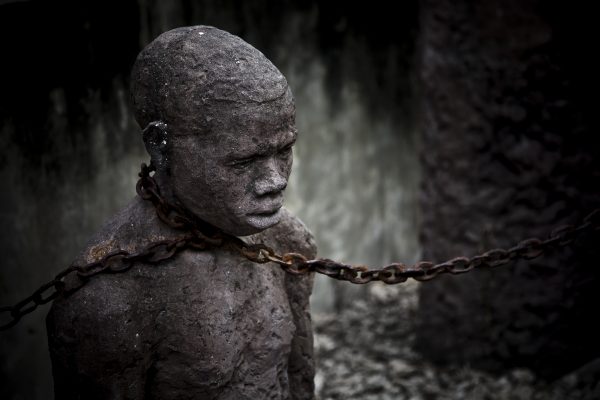“Therefore, whatever [ignorance] comes to man is due to the impurity of his nature; if the veil be lifted and the screen and obstacle removed, the truth of things as they are will become manifest.”
“Therefore, whatever [ignorance] comes to man is due to the impurity of his nature; if the veil be lifted and the screen and obstacle removed, the truth of things as they are will become manifest.”
In an article by, B. B. Robinson, it is claimed that Omar Khayyam was an existentialist atheist. Similar statements are being made in various atheist websites as well, and for evidence of this claim, excerpts from his poems (Rubayy) are being given. Even a historian like Philip K. Hitti is saying that Omar Khayyam was a freethinker! Let’s read some lines from Khayyam’s poems first.
Umar’s Poetry
“The temple I frequent is high,
A Turkish-vaulted dome–the sky,
That spans the world with majesty.
Not quite a Muslim is my creed,
Nor quite a Giaour; my faith indeed
May startle some who hear me say
I’d give my pilgrim staff away
And sell my turban, for an hour
Of music in a fair one’s bower.
I’d sell the rosary for wine,
Though holy names around it twine.
And prayers the pious make so long
Are turned by me to joyous song;
Or, if a prayer I should repeat,
It is at my beloved’s feet.
They blame me that my words are clear;
Because I am not what I appear”
…
“Why, all the Saints and Sages who discuss’d
Of the Two Worlds so wisely — they art thrust
Like foolish Prophets forth; their words to Scorn
Are scattered, and their Mouths are stopt with Dust”
…
“Oh, threats of Hell and Hopes of Paradise!
One thing at least is certain — This Life flies”
…
“The Revelations of Devout and Learn’d
Who rose before us, and as Prophets burn’d,
Are all but Stories, which, awoke from Sleep
They told their comrades, and to Sleep return’d.”
…
Although not an expert in poetry, I believe that judging something so serious like someone’s faith by only reading some lines of their poetry is a bit unfair. I cannot understand how some scholars have made their decision that Omar Khayyam was a pessimistic philosopher, materialist, and strict atheist just by reading his poetry.
To further explain why the quick jump to conclusions based off of poetry is unnecessary, let us take a look at some of the poetry of other well renown Muslim poets and writers, including Allama Iqbal, the “spiritual father of Pakistan”, and Qazi Nazrul Islam, Bangladesh’s national poet.
Iqbal’s Poetry
Let us first read from Allama Iqbal’s poetry, in where he speaks directly to God:
“Design a new pattern
Create a more perfect Adam
This making of playthings of clay
Is not worthy of God, the creator
If the pattern is poor
What does repetition achieve?
How can the cheapness of man
Meet your approval?”
Now, would you say that Allama Iqbal, who always strived on the path of Islam, was an infidel?
Nazrul Islam’s Poetry
Qazi Nazrul Islam is one of Bangladesh’s most treasured poets, also famous for his Islamic poetry as well. A collection of his Islamic poetry made by the Islamic Foundation of Bangladesh has compiled more than 400 pages of his work. Now, let’s look at an English translation of his poem বিদ্রোহী (Rebel):
“Say, Valiant,
Say: Ripping apart the wide sky of the universe,
Leaving behind the moon, the sun, the planets
and the stars
Piercing the earth and the heavens,
Pushing through Almighty’s sacred seat
Have I risen,
I, the perennial wonder of mother-earth!
The angry God shines on my forehead
Like some royal victory’s gorgeous emblem.
Say, Valiant,
Ever high is my head!”
…
“I crush under my feet the vain glory of the Almighty!”
…
“Sitting in the burning pit of Hell
I smile as the innocent flower!”
…
Does this make Qazi Nazrul Islam a heretic or an atheist? He further writes in the same poem: “I am insane! I am insane!” So now it should make sense that the same scholars who concluded that Omar Khayyam was de facto an atheist, should also say that “Nazrul Islam was a mad-man! Look, he writes it himself!” Taken from PoemHunter, besides Rebel there is another poem of Nazrul Islam which goes: “Allah is my lord…”.
The words chosen in a poem and the core meaning of the poem can be very different. They can even be the opposite, therefore judging someone’s faith just by reading their poetry is totally absurd.
This is especially true because the general consensus is that Omar Khayyam was a poet not a scientist; but actually, he was scientist, not a poet.
Let’s discuss in detail.
Khayyam: Really a Poet?
A scholar, Hans Heinrich Schaeder, said that the name of Omar Khayyam should be removed from the history of Persian literature because of the lack of any material that could confidently be attributed to him.
But still, he was a poet. The first allusion to Omar’s poetry was done by Imad al-Din Isfahani, 50 years after his death. There are also 25 Arabic poems attributed to Omar by classical scholars. The number of quatrains, according to the writings of contemporary scholars of Omar’s time, are 6. The question then is, how did 6 poems rise up to 1200? The most famous manuscript in Oxford’s Bodleian library consists of 158 poems.
After much analysis, it is being understood that it is probably the poetry of several poets here, including Hafiz, Attar, and philosophers like Al-Ghazali and Ibn Sina. Usually Diwans remain intact for long time, but there are high chances of Rubayy getting mixed and corrupted.
Christensen has worked the most in this field, and announced that 121 poems are of Omar Khayyam’s. But he is unable to give a guarantee even for the 12 poems kept in the first class! These poems were selected keeping in mind the Persian writing styles and Omar’s thinking process. But both the Persian rhetoric and Omar’s thought are disputed. Afterwards, Christensen himself said that it is an impossible task to be sure about the actual poems of Omar Khayyam. Christensen’s work is nothing but a collection of poems with a specific rhetoric and thought process.
Most scholars, only by reading Omar’s poetry, are giving into the statement that he was a pessimistic philosopher and a materialist, which is very wrong. This problem has risen because of not reading Omar’s non-fiction writing. They only look at the poems because of its fame. Based off of this, we even see Christopher Hitchens making Omar a member of neo-Atheism!
So, looking at the poems have no value, and let’s instead analyse his non-fiction writing. Before going into this, I would like to clear out that there is a non-fiction work in Berlin by Omar Khayyam on existentialism, and a classical scholar named Najm al-Din Daya describes Omar as a pessimistic philosopher, atheist, and materialist. But after reading the following explanation, I hope no doubts will remain about Omar Khayyam’s faith.
Omar Khayyam’s non-fiction writings
Umar Khayyam writes himself: “This [Tasawwuf or Sufism] is the best of all ways, because none of the perfections of God are kept away from it, and there are no obstacles or veils put before it. Therefore, whatever [ignorance] comes to man is due to the impurity of his nature; if the veil be lifted and the screen and obstacle removed, the truth of things as they are will become manifest. And the Master [the Prophet Muhammad] upon whom be peace – indicated this when he said: ‘Truly, during the days of your existence, inspirations come from God. Do you not want to follow them?’ Tell unto reasoners that, for the lovers of God [Gnostics], intuition is guide, not discursive thought”.
Historian Ibn al-Qifti writes that Omar Khayyam was once skeptical about faith, but later, became a practicing Muslim, went to hajj, and after coming back visited the mosque day and night. Shams Tabriz (Sufi guide of Rumi) and a few other Sufis didn’t like Omar. This is not abnormal, as Ibn Sina was also called a disbeliever in his lifetime and he always replied back in return. Even the great hadith scholar Ibn Hibban was accused of atheism, and had to leave town. Omar Khayyam went to hajj in order to prove that he was indeed a believer.
The most important book for Omar Khayyam’s biography is by Abu’l Hasan al-Bayhaqi. He describes the death of Omar Khayyam as such:
“Ḥakim was studying the Ilāhiyyāt of Shifā and once he came to the section on unity and multiplicity, stopped in order to pray and utter his last words. His companions gathered and he [Khayyām] announced his last will and testament and performed his noon prayer. He neither ate nor drank again until he performed his night prayer. He bowed and placed his forehead on the ground and said: ‘O God, I know Thee in as much as my ability allows, forgive me for I know Thy way is the way towards Thee’, and then died.”
Shahrazuri describes Omar’s last day similarly. There he further writes that Omar Khayyam was making sujood (prostration) and asking Allah to forgive his sins at the time of his being skeptic. He died at that state, while making sujood.
Conclusion
So if we look holistically at Omar Khayyam’s non-fiction writings, poems, and descriptions made by his contemporary historians, we will be able to understand that he was in no way an atheist and was in fact a spiritual Sufi Muslim. Of course, there will remain a huge debate among scholars in academia about the faith of Omar Khayyam; and the question of his faith will remain somewhat open. But I hope that this article has been able to clear out some of the obscurities surrounding his devotion towards God.
Sources:
- Seyyed Hossain Nasr, Science and Civilization in Islam (ABC International Group, Inc. 2001) p: 33.
- Iqbal’s Educational Philosophy, by K.G. Saiyidain, 1938.
- Francois De Blois , Persian Literature – A Bio-Bibliographical Survey: Poetry of the Pre-Mongol Period (2004), p. 307.
- V. Minorsky, “Umar Khayyam” (translated into Bengali by Humayun Khan) In Islami Bisshokosh (Islamic Foundation Bangladesh, 2nd edition, 2004) vol. 6, pp: 196-201 (the text is translated from Islamic Encyclopedia published by E.J. Brill).
- ‘Umar Khayyam. Risalah-i wujud (Bayadi MS. in the Tehran National Library). Translated by S. H. Nasr.
- Ross, E. (1898). “Al-Musaffariyé: Containing a Recent Contribution to the Study of ‘Omar Khayyam.” Journal of the Royal Asiatic Society of Great Britain and Ireland, 349-366.
- “Ibn Hibban” in Islami Bisshokosh (Islamic Foundation Bangladesh, 2nd edition, 2004) vol. 4, pp: 532.
- Meyerhof, M. (1948). ‘Ali al-Bayhaqi’s Tatimmat Siwan al-Hikma: A Biographical Work on Learned Men of the Islam. Osiris, 8, 122-217.
- “Umar Khayyam” In Islami Bisshokosh (Islamic Foundation Bangladesh, 2nd edition, 2004) vol. 6, pp: 209.





